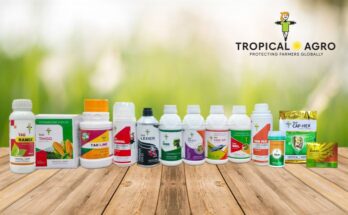Basel, Switzerland: Syngenta’s TYMIRIUM technology has received regulatory approval in Argentina, bringing farmers closer to accessing the novel nematicide and fungicide for both seed and soil uses that is highly effective even at low use rates.
TYMIRIUM technology provides long-lasting protection against invisible yet highly destructive nematodes and soil-borne diseases – particularly the Fusarium species. Key benefits include its ability to safeguard plant roots from attack, translocate to above-ground parts of the plant and protect against early-season diseases. Simple to apply, it is also highly compatible with a wide range of other crop inputs.
“Plant-parasitic nematodes and soil-borne diseases are invisible threats that can devastate crops and lead to yield losses of up to 12 per cent globally per year – equating to an estimated loss of $150 billion a year for farmers,” said Jeff Rowe, President – Global Crop Protection, Syngenta. “The development of TYMIRIUM technology required an investment of over 10 years to bring it from discovery to market – a clear example of Syngenta’s commitment to address farming needs,” Rowe added.
You may also like to read: FMC India launches ‘Austral’ herbicide for sugarcane crops
Nematodes are present in almost all agricultural soils, attacking crops and opening a path to further fungal infection and reducing farmers’ yield and produce quality.
Farmers using TYMIRIUM technology further benefit from its ability to preserve soil biodiversity and soil health. A protected, stronger root system supports soil structure and soil organic matter, enhances nutrient use efficiency, and improves crop resilience to both biotic and abiotic stress. Highly selective, TYMIRIUM technology has minimal impact on beneficial insects, pollinators and soil biodiversity.
Speaking on the development, Camilla Corsi, Global Head of Syngenta Crop Protection Research said, “The positive impact of TYMIRIUM technology on soil health reflects our growing understanding of this vital interaction, our increased R&D investment into building our capabilities at our Soil Health Centre in Stein, Switzerland and globally, as well as our collaborations in this exciting field.”
You may also like to read: Industry should engage with Govt to reduce use of fertilisers & pesticides, urges agriculture minister
Products containing TYMIRIUM technology will be launched in over 100 crops and in more than 60 countries around the world, under various trademarks in the coming years. VANIVA – or EVIDIS in selected markets – will denote soil-applied solutions that will provide early protection in a wide range of crops such as potatoes, tomatoes, banana and sugarcane, and is compatible with multiple application methods including drip, drench and in-furrow. Seed treatment solutions will be marketed under the VICTRATO brand, and will be available for crops including soybeans, corn, cereals, cotton and rice.
(The story is based on a brand announcement made by Syngenta.)





